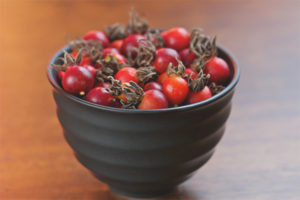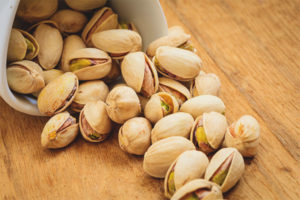The content of the article
Grapes are a tasty and healthy berry that has long been consumed both raw and used to make drinks. From various grape varieties make juice, wine, cognac, port, vinegar, oil. In addition, the berries are dried to create raisins. In general, grapes have many beneficial properties, but is it beneficial for pregnant women? Wine in this position is definitely not worth drinking, but in terms of fresh berries, you should go broke in more detail.
General information about grapes
Grapes are a genus of plants of the family of the same name that grows as a climbing vine. Grapes grow in the form of clusters, have different colors and sizes. The color of the grapes varies from dark blue to light green, and the sizes are several centimeters. The shape of the berries is oblong-oval. For ripening, the fruits need about six months of a warm mild climate.
The first mention of this berry dates back to 8 thousand BC. e. Georgia is traditionally considered the birthplace of grapes, but it is known that in Armenia and North America grapes were also eaten around the same time. In Georgia, jugs with the remains of wine on the walls were found; the age of these jugs exceeds 8 thousand years. Wine attributes were found in Armenia dating from about the same time. It is believed that our ancestors learned to make wine from grapes almost immediately after they had inspired the taste of this berry.
A large role was played by grapes for the inhabitants of Ancient Greece, where it was imported from the countries of the Middle East. This berry in Greece was considered as an integral part of cultural identity, like olives. It is worth saying that in those days not only grapes, but even wine was consumed not only by men, but also by women, and even children.
Grape varieties
Grapes are different. All the fruits of cultivated grapes are suitable for consumption, but at the same time they differ in appearance and taste. There are several grape varieties, which are divided by purpose:
- The dining room. The fruits of this grape have a beautiful presentation and sweet taste, they are large, juicy and the same.
- Technical. It is rarely used for food due to the astringent taste and not very presentable appearance. But from it they make juices, vinegar, oil, wine and other alcoholic and non-alcoholic drinks.
- Seedless. The fruits of such grapes are small and seedless. They are eaten and used to make raisins.
- Universal. Such grapes are suitable for any use and processing. It is sweet enough and has a lot of juice.
Each variety corresponds to many species. Each species has its own habitats, useful and dangerous properties. On the shelves of our markets and stores, the following are most often found:
- Black grapes. These are large dark purple oblong berries with a tart taste. Black grapes are technical varieties, it contains a lot of juice, which quickly begins to ferment. It is because of fermentation that it is not recommended to consume this type of grape during pregnancy.
- Green grapes. These are light medium-sized oblong berries that contain a moderate amount of juice and pulp. Green grapes belong to the dining rooms and have a characteristic grape flavor. You can use it during pregnancy.
- Kishmish. These are small green berries that are seedless. Accordingly, this species belongs to boneless. Kishmish is very sweet and pleasant to taste, it is from it that raisins are made.This species is most safe for pregnant women, since it does not contain seeds, which may contain hazardous substances.
Grape properties
Of course, each variety and type of grape differs in its properties from the others. Moreover, of great importance is the place of grape growth, the number of rainy and sunny days in its habitat. The following are averaged data for the most common grape varieties.
It is worth knowing that 100g of grapes contains about 70kcal. Almost like 100g of potatoes or 200g of cabbage. However, this product can not be called dietary. The fact is that grapes are almost entirely composed of carbohydrates and not just carbohydrates, but sugar. The ratio of proteins, fats and carbohydrates in it is 4: 1: 26. Moreover, sugar makes up almost 90% of all carbohydrates. A distinctive feature of grapes is that instead of fructose, it contains glucose, which determines the possibility of fermentation. We can say that grapes are almost sweets.
At the same time, grapes contain a large amount of ascorbic acid, as well as some B vitamins, vitamin A and vitamin E. In addition, it contains many useful organic acids, including the unique one - tartaric. As for trace elements, grapes have a lot of calcium, potassium, magnesium and phosphorus. It also contains iron, but in small quantities.
The benefits of grapes during pregnancy
Next, we will focus on those grape varieties that can be consumed by pregnant women. These berries have the following beneficial properties:
- Help cope with toxicosis. The mechanism of this action has not been studied, but it has been empirically found that grapes with moderate use reduce the likelihood of nausea and other disorders characteristic of pregnant women.
- Strengthen the immune system. Vitamins and organic acids contained in grapes positively affect the body's immune system, which is important to protect the expectant mother from infection.
- Improve vision. Thanks to vitamin A, which is simply essential for our eyes, eating grapes can help maintain vision, which often decreases during pregnancy.
- I help the baby develop. In order for fetal tissues to grow and develop, a large number of different plastic materials and vitamins are needed. Particularly useful in this regard are B vitamins contained in grapes.
- The fight against anemia. As already mentioned, grapes cannot be called the record holder for iron content, but it contains another very important element - vitamin C or ascorbic acid. The fact is that this vitamin significantly improves the absorption of iron and increases its intake in the body. That is why grapes are useful to use with products containing a lot of iron.
- They give energy. Glucose contained in grapes very quickly turns into a source of energy, which is very important when bearing a fetus.
Harm and contraindications
As already mentioned, black grapes are absolutely contraindicated for pregnant women because fermentation processes quickly begin in it. In addition, grape seeds, which cause constipation and a source of toxic substances, have a negative effect. Grapes are contraindicated in pregnant women who have problems with the gastrointestinal tract. In addition to constipation, these berries can cause flatulence and abdominal pain.
In addition, grapes are absolutely contraindicated for people with diabetes because of the high content of glucose in it. Pregnant, obese, also should forget about these berries. In addition, if a woman has a large fetus, doctors also recommend giving up everything that contributes to weight gain.
Do not eat grapes in the third trimester, since it is a strong allergen. The same rule applies to nursing mothers.
Thus, we can conclude that grapes are a really useful product that can be consumed during pregnancy. However, there are some limitations. First of all, it is worth choosing the right variety and determining the presence of contraindications. In addition, it is important to remember that any product benefits only with moderate use.
Video: Health Benefits of Grapes











Submit